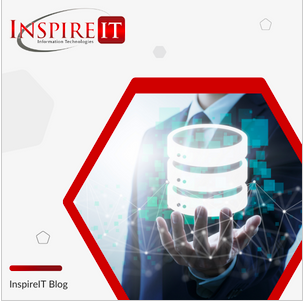Oracle Database API for MongoDB: What You Need to Know
Thanks to the new API, you can now connect applications written for MongoDB to an Oracle Cloud Database and keep working with MongoDB commands.
We take a look at how it works and the benefits this new way of working brings
Why use an Oracle database as though it were MongoDB?
The new Oracle Database API for MongoDB means that developers can continue to use their existing MongoDB skills but also leverage the power of an Oracle Autonomous Database. Data is not synced or replicated but stored in an Oracle Database, serving MongoDB applications, tools and drivers.
One of the big advantages is the ability to use Oracle’s new Converged (multi-model) database. Converged databases support various data models (i.e. spatial, XML, machine learning, etc.). So, you are not limited to one data model; you can convert data from one representation to another instead of needing separate databases and APIs.
Other benefits include the ability to perform advanced data-processing tasks, and time-saving on manual tasks with Oracle’s autonomous functions.
How does it work?
As mentioned above, the Oracle Database API for MongoDB does not replicate or sync data. Instead, data is stored in Oracle with MongoDB API.
As the Oracle Developers Channel explains, certain choices needed to be made around features. This means that they have retained Oracle’s users/roles and that SQL is needed for analytics and reports.
Migrating to Oracle Cloud
Migration to Oracle Cloud with the Oracle Database API is simple, meaning maximum gain for minimal time and effort. However, it is important to make sure everything is in place before you begin. At InspireIT, we offer Oracle Cloud services from our experts. We can assist with migration by:
- Creating an Oracle Cloud Strategy and Roadmap
- Determining which systems will be placed in Oracle Cloud
- Determining which types of Oracle Cloud services can be used:
We also offer database management and monitoring services, so that your systems can continue to run without disruption.
Advantages of Oracle Autonomous Database
As Oracle explains, an autonomous database is “a cloud database that uses machine learning to automate database tuning, security, backups, updates, and other routine management tasks traditionally performed by DBAs.”
In fact, this form of data management can reduce administration costs and downtime by up to 90%. So, DBAs can now spend more time on other projects, limiting the need for manual, repetitive tasks.
Oracle Autonomous Databases also come with advanced security and data protection/disaster recovery.
To find out more about the importance of disaster recovery plans and how Oracle Cloud provides protection, see our recent article.
The importance of good database management and Outsourcing
Good database management and monitoring are crucial to getting the most value out of your data. Without the right management team in place, problems are more likely to arise that mean data is inaccessible temporarily or unusable for another reason.
In-house IT departments do not always have the resources to carry out in-depth database management alongside their other tasks. Outsourcing is a scalable solution that allows access to expert help in a cost-effective way.
At InspireIT, our specialist team is here to help you with everything from Oracle Cloud services to staff outsourcing and hardware solutions.
Our experts know how to help. Simply get in touch for more information or read our latest technical articles for more insights.





